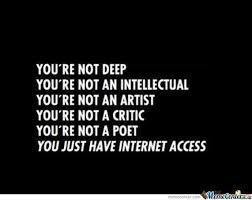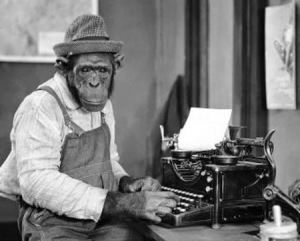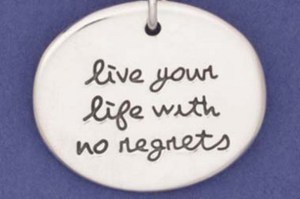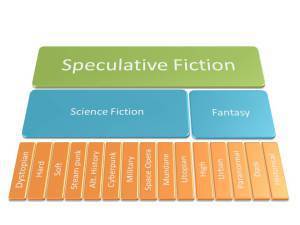Sally Ember's Blog, page 108
July 16, 2014
“Word Crimes” by Weird Al Yankovic
How much do I love Weird Al? Even more, now: A grammar rant! Perfect!
Weird Al is back …. and, I’m so glad he is!
I’m all for grammar songs.
Filed under: Writing







Good #Writing DOES Require #Talent, Not just Hard Work
I really got inspired last week (frustrated, actually), by a post written by a colleague about supporting ALL writers. I contributed this comment, below, on her blog.
In my recap (I waited a week to make sure I wanted to post this), below, I update you on the online “conversation.” First, I quote from her blog, link to it, and post my original comment in its entirety. Images added for fun.
from blog.performics.com
In response to “You Don’t Have to Be Good (at Writing)” by Jordan Rosenfeld
Good #Writing DOES Require #Talent, Not just Hard Work by Sally Ember, Ed.D.
original post on http://jordanrosenfeld.net/you-dont-have-to-be-good-at-writing/
posted on 7/9/14
quotes from Jordan’s post:
“…’good’ is arbitrary; you’ll be good enough for some, while others will reject you. It’s a standard you’ll never live up to because it’s subjective and always changing.
“Beating yourself up over being ‘not good enough’ is a form of stopping up the free flow of creative energy. It can even be a form of self-sabotage. In the worst case scenario, it’s an excuse to not have to get any better at it; a statement of ‘This is just the way I write.’”
“False! This is how you write at this time, in this moment, with whatever resources are at your disposal. Every time you read a fantastic book, your writing has a chance to crack open. Every time you hear a lecture, attend a class, or pick up a writing guide, you can learn or see something in a new light, and your writing changes. Time and distance also change how you see your writing.”
“What you can be is committed to continually probing the depths of your work, or taking time to learn something you struggle with, or just stepping back completely and reading when your own work feels too unwieldy.”
“These voices of doubt and uncertainty are gremlins sent to test our creative mettle, to strengthen us up. The more we fend them off by patching the leaks they tear open inside us with further work, the more power we have to overcome them. Like the ‘dark side’ that calls to us with its illusion of power, its promise of the familiar, which is cozy in a bleak sort of way.”
“Shine some serious, badass light on those demons when they come, instead. Write them into a new narrative.”
“Don’t worry about being good. Be enough. Be committed.”
My comment:
Hi, Jordan,
I have to disagree. I am not of the opinion (as many are; seemingly, you) that anyone who wants to “share” should be honored for doing so regardless of the quality of their content and writing. There are a lot of inadequate writers who self-publish and some who get published by trad publishers who never should have had their writing seen by others.
Some people can’t write. What they do write is unclear, repetitious, uninteresting, banal, riddled with cliches and lapses in logic or sense. I’m not just talking about too many typos or grammatical problems. I’m talking about bad writing. It exists. It needs to be called out.
from http://www.memecenter.com
About thirty years ago, in an effort to combat overly critical adults’ impact on children and imitating the Special Olympics’ methods, most parents, recreation and education people began to make huge mistakes: participation became the same as surpassing. Everyone in the Pre-K “graduated” to Kindergarten. Everyone at a camp or club got a ribbon for attending.
Result? People who are now 45 and younger have the mistaken belief that everyone is “great”; it’s other people who make them “feel bad.” Self-esteem-building was taken to such an extreme as to make actual achievement or superiority meaningless. An overly developed sense of entitlement goes hand-in-hand with an inability to discern good from bad. I’m sorry to point it out, but your post is a prime example of this faulty thinking.
Real life: not everyone wins, nor should they. Ask Brazil this morning! Poor performance should NOT get a medal, and not all performances are equal.
Not everyone is talented, skilled, or worthwhile in every area. It’s fine to acknowledge this and not in any way demeaning. In fact, applauding mediocrity makes it indistinguishable from excellence, or worse, allows everyone who can put words on paper to call themselves a “writer.” That makes excellent or even passably good writing impossible for most people to recognize or value.
Not everyone should be encouraged to be a writer. Really. You did that person a serious disservice by not evaluating his work objectively.
We have no trouble saying that people who are “tone-deaf” or clumsy shouldn’t be professional singers or dancers. Sing in the shower; dance in a club or at home. But, we don’t encourage them to call themselves artists. Why can’t we use the same discernment about untalented authors?
What does “be enough” mean when we should be talking about quality, not quantity? It’s fine to be “committed” to self-expression; commitment doesn’t make a person a good writer.
Some people really AREN’T “any good” and should not be encouraged to write for the public. Tell them: journal all you want. Or, get a ghostwriter, if your story is compelling and you can’t write it well.
Please stop encouraging everyone equally. You aren’t being an editor, then; you’re being a cheerleader for the entire world.
Don’t encourage inadequate writers that no amount of coaching can improve to share their drivel. Not every story should be told by every storyteller.
from multicultclassics.blogspot.com
Some people really can’t tell jokes, either, and should not. I’m one of those.
Best to you,
Sally
Since that day, I thought a lot more and want to add these components:
1) Most people are perfectly willing to assign the label of “bad” to other art. Why is that so much easier to do than to label someone’s short story, novel or article as poorly written?
2)I’m not looking for perfection. I want high standards to be understood and upheld (but not at the expense of heritage or gender differences). I want people who are in positions of authority in publishing, editing and education to help explain and maintain standards. Give writers something obvious to aspire to (with a healthy range of “good” within many genres and types of excellence).
3) Paying for awards and buying one’s accolades have to stop. We as readers and authors shouldn’t allow any authors to buy “positive” reviews, “win” a prize they’ve paid for, stuff the review “box,” or otherwise corrupt our understanding of what is excellent. We must speak out about these corrupt practices and not be sucked into them ourselves, however tempting.
UPDATE: Many people have commented in the last week on Jordan’s post about how awful I am to have shared these opinions. Some say that any typos I ever made negate all of my opinions’ value (!?!). Some say that I don’t have the right to disagree on this blogger’s site with her posts (Jordan herself actually invited me to stop visiting since she thinks I don’t read her posts carefully enough).
The comments from some of the others highlight the unfairness and absurdity of insisting that everyone who wants to express themselves on paper/online is equally valuable as a professional writer. Just because everyone can publish anything doesn’t mean they should. Who disagrees?
I’m not demeaning the validity of self-expression. But, everyone who bangs on a piano is not a professional pianist. Everyone who jumps around is not a professional dancer. Does anyone dispute this? Why is it so difficult (and, obviously, painful) for amateurs and those whose words are best kept private to be told the truth?
There is “good” writing, albeit subjectively assessed, and I agree that the standards are constantly changing and open for dispute. Don’t I have the right to state my own standards?
Yes, some writers improve with practice, and everyone who writes might improve. What if they don’t?
Are all writers to be considered “professionals” and deserving of praise just because, at this point in time, anyone can publish? Yes, completing an entire book is an accomplishment. But, are all accomplishments equal? Prize-givers and reviewers don’t believe that is true.
Why am I being lambasted for pointing out my reasons for wanting “writing coaches” to be able to be professionally helpful in assessing them and then be honest with their clients, while personally being as encouraging as they choose? Wouldn’t you want an editor you are paying to edit to–oh, I don’t know–edit? Why are these distinctions so dreaded?
Worst are responders to this “conversation” who are petty and mean, calling me names, disparaging me and my writing, because I dared to disagree with the blogger and provided reasons these commenters didn’t like. Really? That is the way discourse operates on these sites, now? More trolls than writers, there.
I made a professional comment. There should have only been professional replies. I was NOT being a troll. I respect and admire Jordan, usually, and enjoy her posts. I wouldn’t allow that kind of personal, disrespectful disparagement to be approved as comments on my site.
Guess my comments struck a nerve. Looking forward to your opinions! Go read the other comments, if you want.
I did get one bonus, though: someone found a typo on my site’s ABOUT page, which I then fixed. Thanks!
BTW: I was sent several private messages, from people who didn’t want to “join the fun” and then get blasted, I guess. They encouraged and thanked me, agreeing with my opinions and adding their own. Too bad they’re too scared of the blow-back to go public with their opinions.
P.S. to Jordan: I was not disparaging you by labeling your supportive actions “cheerleading,” merely being descriptive. I WAS an actual cheerleader, an achievement earned by having talent, being committed, acquiring and honing skills, and (unfortunate and unfair, but pertinent) being “popular.”
Similarly, as hard as it is for some to acknowledge, professional writers must also fulfill all of these to succeed. Everyone “in the stands” can and is encouraged to cheer. However, at my school in 1968, only eight of over one hundred girls each year were selected to be cheerleaders.
How many journal writers and home bloggers are going to make the “cut” to become professional writers? What is required? I hope you help them determine their eligibility and assess their chances, not just keep cheering.
Filed under: Blogging and others' content, Opinions, Writing Tagged: authors, Writers, writing







July 14, 2014
RT and SHARE! TODAY! July 14 = “Digital Book Day”
From CJ Lyons of No Rules, Just WRITE!, http://www.norulesjustwrite.com/:
“If you’re as sick of hearing about the industry woes as I am, then here’s a chance to celebrate our readers (and maybe get some new ones!)
“I’m declaring Monday, July 14th Digital Book Day!”
(that’s also Bastille Day, btw!)
[I included This Changes Everything, Volume I, The Spanners Series, 'cause it's PERMAFREE!--Sally Ember]
cover art by Aidana Willowraven.
Come to http://www.digitalbookday.com TODAY, July 14th to grab your book and others.
“CJ Lyons”
“PS: please, please share this with any review site/blog/book club/writers group that you know!”
Today is the day! http://www.digitalbookday.com
Go get some new *free ebooks*! Find some new #ebook #authors! Start with me/mine: be patient and keep trying! Site is very busy!
Filed under: Indie or Self-Publishing, Marketing, The Spanners, This Changes Everything, Volume I of The Spanners Tagged: authors, ebook, self-publishing, The Spanners Series, This Changes Everything







The #Freedom to Die without Regret: Post for #RaveReviewsBookClub #Blog #Recruitment Day
What will you do today to be able to end your life at the uncertain time of your death with as little regret as possible? The freedom to die without regret is the aim of many meditators and those with spiritual practices of other types. I have been living a better life, striving to be a better person, doing meditation practice intensively for many decades as part of my “live-and-die-without-regret” plan.
One day last fall, I walked through my neighborhood in northern California in a new direction, on streets I hadn’t walked before. There was a wide variety of landscaping, from untended dirt piles (for what purpose?) to blooming plants, featuring some very large, standing roses bushes all in a line. The dwellings ranged from assisted living, small buildings with apartments, and tinier cottages than mine to large homes and a few of what I’m sure were mansions when they were built in the early 1900s. To my eye, this “neighborhood” contained a haphazard mix of land use and varied conditions of the habitations.
Mansions’ grounds looked something like this. image from betterdecoratingbible.com
I lingered in front of the beautiful fountains and shrubbery of one of the mansions, moved on to adore two little landscaped ponds and wondered what inspired their creation. I then went to sit in the neighborhood park on this beautiful fall day.
The combination of the 70-degree temperature, the bright sun, the park’s peacefulness, the sweet-smelling breezes, the cloudless skies, my own independence and freedom (having recently been laid off), created a “perfection moment.” Into this scene walked two more people.
A girl of about four pranced in and began to play with her “papi” (a Spanish term for “father,” but is used for almost any older male relative or even one’s boyfriend or husband; he appeared to be her grandfather). Papi had carried in a large bubble wand and jar of bubble mixture. Their game involved his dipping the wand and waving it to let the bubbles flow toward her in the light breeze. She would then shriek in delight and leap, run, stretch high, crouch and kick to get the bubbles within her reach to pop them.
She buzzed around the playground, laughing and calling out, “Papi! Papi!” with joy each time she popped a rainbow bubble. He laughed with her delight and kept sending them to her. At one point, his enthusiasm and the breeze conspired to put the bubbles a bit ahead of her, coming too fast and out of her reach.
image from http://www.designdazzle.com
Indignant and out of breath, she went over to him, stomped her foot, put her hands at her hips (in her best imitation of her mom?) and said, “Papi! Wait for me to come to you!”
“Oh, yes, of course, mi Princesa!” he replied, bowing, and did as she asked.
Satisfied, she resumed her annihilating spree with vigor.
Life sometimes is just like that: everything is beautiful, within reach, delightful, fun and able to be changed at our command. As humans, especially many who are living in relative peace, many of us live long lives, replete with splendor and abundance of all that we could possibly desire.
Yet, our lives, as any, are actually just rainbow bubbles, able to be burst at any time by another’s actions, or the breezes, or by striking an object, or just by our coming to the ends of our bubble existences: POP and life is over, royal or not.
Then, unlike a bubble, which seems to be free of self-reflection, we know we just died. Some of us die slowly, having time to contemplate our lives and deaths as we die; that’s part of our existence. A few of us have long, self-recriminating death throes that go on and on, all the way until we land in our next incarnation or experience whatever we believe is “next.”
Our death-bed remorse and self-castigations are for naught: no matter how many ways we imagine we could have done things differently, as we lay dying, it’s too late. Regrets are not what we want to be left with when we die.
Many spiritual teachers often say that the best departure any human can hope for is to die without regret. How many of us could die today without regret? Do you have that freedom?
image from http://www.chfi.com/
Some ways to reduce regrets (add your own): Spend more time with loved ones. Finish that project. Offer apologies. Go on a vacation. Appreciate, love, thank people, repeatedly, for their presence in your lives, out loud, to their faces, and/or write thank-you letters. Give to charities. Take that chance. Share your possessions, time, other resources. Tell stories. Learn another language. Play music. Make art. Dance. Sing. Read. WRITE. Ask for others’ stories. Donate land, restore something, fix things. Organize your papers. Toss embarrassing “evidence” NOW.
If you become incapacitated, have you designated someone to have financial/legal Power of Attorney, a Health Care Power of Attorney? Do you have a Living Will that includes a declaration of intent when “heroic measures” are indicated? What about a DNR (Do Not Resuscitate) order? Who knows where all these papers are located?
Who is your “executor”? That is a role EVERYONE needs to have filled, not just those with a lot of money or property.
For those left behind: Write a Will and have it witnessed and notarized. Sort through and discard things so your friends and relatives won’t have to do that. Designate who gets what, clearly.
Plan for your death: what about your body’s disposal or burial (organ donor? cremation?). Your funeral? Do you have or need to purchase a burial plot? Are your death expenses covered? What ceremonies do you want and to whom have you described them? Has the music been chosen? The guest list provided?
Something to aim for: the freedom of dying without regret. And, since we do not know the time, manner or date of our death, start NOW on that course.
What will you do today to be able to end your life at the uncertain time of your death with as little regret as possible? I encourage you to do that. And more tomorrow. That is freedom.
*******************************
Today’s post, on the theme of “Freedom,” is part of a the Rave Reviews Book Club’s July Blog Hop. Please click on this link and VOTE on my post if you like it best. Go read some others, too!

Blog Recruiting Day Voting Link
Are you an author who wants to belong to a supportive, helpful group? Please read the FAQs, here, and if you like what you read, join the Rave Reviews Book Club today (click below). Join the Twitter Team, exchange reviews, support each others’ cover and book releases, share tips and be part of great network of authors.
Click on the link for more information and a membership sign-up form.
Mention ME: Sally Ember, @sallyembedd. Thanks!
Filed under: Life lessons, Meditation Tagged: death, dying, freedom, meditation, Rave Reviews Book Club, regret, spiritual, spirituality







July 12, 2014
46 Top Websites to Promote Your Book for FREE
Even better: http://www.bookmarketingtools.com has a database in which you enter your free book(s)’s info ONCE and it can be posted to many sites. Small fee to use the tool, but saves HOURS of retyping time. Check it out!
 Originally posted on Savvy Writers & e-Books online:
Originally posted on Savvy Writers & e-Books online:

Stand out Against Thousands of Books
.
Added June 23, 2013:
Dear Reader: This list of websites, which we compiled in March 2012, grew in the meantime to almost 100. Please visit our two new blog posts with even more possibilities to announce your work for free:
http://savvybookwriters.wordpress.com/2012/11/03/50-web-links-to-let-your-book-go-viral/
http://savvybookwriters.wordpress.com/2012/11/04/part-2-45-more-websites-to-promote-your-book/
All three blog posts are officially copyright registered. To link to our blog posts, and let your own readers know about these websites, please use the RE-BLOG link on top of this page. Thanks! Please learn about re-blogging here:
http://savvybookwriters.wordpress.com/2013/06/01/re-blogging-vs-copyright-infringement/
.
Original Article from March 11, 2012:
1. Goodreads
Use your free membership to promote yourself and your books. Reviews are essential and reviews on Goodreads site help your book to really stand out to millions of visitors.
2. Wattpad
Wattpad has experienced explosive growth since its inception and has become the world’s most popular destination to publish and…
View original 771 more words
Filed under: Writing







“You Are Triggering Me!” The Neo-Liberal Rhetoric of Harm, Danger and Trauma
Brilliant, Jack: “…saying that you feel harmed by another queer person’s use of a reclaimed word like ‘tranny’ and organizing against the use of that word is NOT social activism. It is censorship.” I applaud your considered thinking on these difficult topics.
I have lived through and participated in most of the “eras” you describe. You forgot t mention the part where some claim that my recognition of my bisexuality is considered false by others. I also insist that most people are bisexual (biologically correct), and that anyone who has even a modicum of attraction, in dreams or otherwise, to both or all genders is bi-, or omnisexual. I get a lot of hate mail for that.
My pet peeve: applauding EVERYONE and exalting mediocrity in the process. Good on ya!
 Originally posted on Bully Bloggers:
Originally posted on Bully Bloggers:
by Jack Halberstam
I was watching Monty Python’s The Life of Brian from 1979 recently, a hilarious rewriting of the life and death of Christ, and I realized how outrageous most of the jokes from the film would seem today. In fact, the film, with its religious satire and scenes of Christ and the thieves singing on the cross, would never make it into cinemas now. The Life of Brian was certainly received as controversial in its own day but when censors tried to repress the film in several different countries, The Monty Python crew used their florid sense of humor to their advantage. So, when the film was banned in a few places, they gave it a tagline of: “So funny it was banned in Norway!”
Humor, in fact, in general, depends upon the unexpected (“No one expects the Spanish Inquisition!”); repetition to the point of hilarity “you can…
View original 2,329 more words
Filed under: Writing







July 11, 2014
Leaving Reviews for Indie Authors
Great idea, #THESPANNERSSERIES’ READERS: *please* continue, in these weeks before my 60th birthday on August 22, by leaving reviews for both the series’ ebooks EVERYWHERE, especially Amazon… GRATITUDE eternal!
 Originally posted on Author S. Smith:
Originally posted on Author S. Smith:
You know that friend who’s always pleading harassing asking you to leave them a book review on Amazon? The one whose book you read? Possibly you even got the book for free? Okay, so ME for some of you.
This is just a little tutorial/explanation of why it is so important and how to do it. One more encouragement to get you over there, leave the review, and drop the guilt. :)
First of all, is one more review really important? YES! Unless the book has over 100 reviews, it’s important. And the author checks every day on occasion to see if there is a new review. And it really makes the author’s day to see a new review (unless it is 2 stars or less and then they feel kind of bummed).
I. WHY REVIEWS ARE IMPORTANT
1) When a potential buyer goes to an author’s book’s Amazon…
View original 950 more words
Filed under: Writing







#Author #Interview with Sally Ember, Ed.D., on Megan Cyrulewski’s Site
Thanks, Megan!
#Author #Interview with Sally Ember, Ed.D., on Megan Cyrulewski’s Site
http://www.megancyrulewski.com/blog/authors-supporting-authors-sally-ember-edd
Filed under: Interviews with Sally as Author Tagged: Author Interview







July 10, 2014
See Ian McKellen as an aging Sherlock Holmes in ‘Mr. Holmes’
For @Mario Cossa: yet another Sherlock. Will this one be gay, as his player is? Or, bi? Or, too old to care about sex (how old is that?)?
 Originally posted on Inside Movies:
Originally posted on Inside Movies:
[ew_image url="http://img2.timeinc.net/ew/i/2014/07/... " credit="Jason Kempin/Getty Images" align="left"]
Sherlock’s pipe has been passed on to Ian McKellen, who’s playing the famous detective in the upcoming film Mr. Holmes—and now we have a photo to prove it.
View original 46 more words
Filed under: Writing







Guest Post: “The Politics of Speculative/ Science-Fiction”
Research, quotes, opinions, infographics, questions for readers/authors, and more. Read my Guest Post on Heather Jacobs’ site: “The Politics of Speculative/Science-Fiction”
Here are the first two paragraphs, to warm you up and inspire you to go read the rest:
The Politics of Speculative/Science-Fiction
by Sally Ember, Ed.D.
No author can leave politics, religion or culture out of our writing. It’s not possible. We are gendered, classed, raced/heritaged, abled/differently-abled, language-based, value-laden, belief-ridden individuals. We are products of our culture and political systems, even if we resist the indoctrination.
A writer may not realize the impact of his/her experiences arising from culture but these permeate every idea, word, sentence. The author who builds worlds may not see the veiled political structure undergirding their dystopian or utopian societies. Nevertheless, Speculative-Fiction, of which Science-Fiction is a subgenre, arises from politics, religion and culture.
Visit, comment, share, follow! Thanks!
http://www.hmjacobs.com/blog/guest-post-politics-of-speculativescience-fiction
Filed under: Science Fiction and Fantasy Tagged: authors, fantasy, paranormal, Psi, sci-fi, science fiction, speculative fiction, writing









 Originally posted on
Originally posted on 











